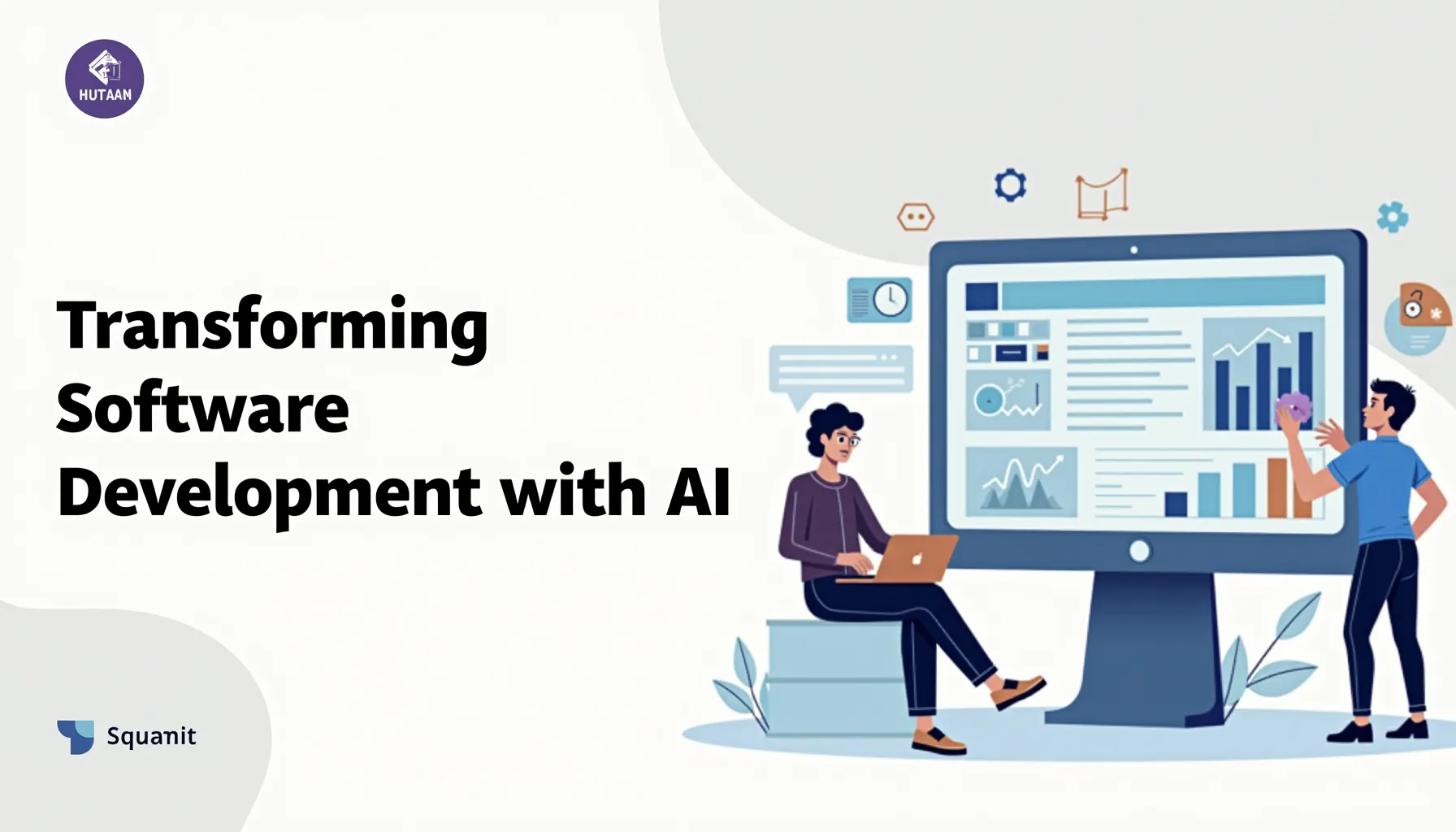Top 10 AI Development Tools to Boost Your Coding Efficiency
-
Dec. 23, 2024
-
Koby Vine

AI development tools are revolutionizing the way software is created, making coding faster, simpler, and more efficient than ever before.
In today's fast-paced tech environment, developers face the constant challenge of delivering high-quality code under tight deadlines.
Fortunately, a range of innovative AI tools is emerging to assist in streamlining workflows, automating repetitive tasks, and enhancing collaboration.
This article will introduce you to 10 essential AI development tools that can help elevate your coding projects to the next level.
From intelligent code completions and documentation aids to advanced debugging solutions, these tools are designed to address common pain points in the development process.
Get ready to discover how AI coding assistants can transform your approach to software development and boost your productivity.

1. GitHub Copilot
GitHub Copilot is an AI-powered coding assistant that provides context-aware code suggestions as you type.
This tool is designed to help developers write faster and write better code by learning from your existing patterns.
With its wide-ranging language support, GitHub Copilot can suggest entire lines of code or even complex functions based on the context of your current project.
By leveraging this AI development tool, you can significantly reduce the time spent on coding tasks and focus more on innovative problem-solving.
2. Tabnine
Tabnine takes code completion to the next level with its AI-driven insights tailored to your unique coding style.
By analyzing your previous work, Tabnine provides personalized suggestions, ensuring they align with your preferred coding habits.
This AI coding assistant supports over 25 programming languages, making it a versatile addition to any developer's toolkit.
With its ease of integration in various IDEs, Tabnine can streamline your workflow and enhance your coding efficiency.
3. Stepsize
Stepsize automates the tedious task of sprint report generation by collecting and organizing your code changes.
Integration with project management tools allows developers to seamlessly document their progress without the usual hassle.
This means less time spent on administrative reporting and more time invested in productive development.
By adopting Stepsize, you can ensure that your projects stay organized and on track.
4. Cody
Cody acts as a collaborative AI coding companion, enhancing team efforts with shared insights and context-aware suggestions.
This tool uses machine learning to analyze team interactions, allowing it to provide relevant assistance based on specific project needs.
Cody helps developers troubleshoot issues and learn from one another, fostering a more collaborative coding environment.
5. Mutable
Mutable automates code refactoring, taking the guesswork out of optimizing your codebase.
By analyzing complex projects, Mutable suggests improvements that enhance performance without compromising existing functionality.
This AI development tool saves you from the often time-consuming process of manual refactoring, letting you focus on expanding your code rather than just maintaining it.
6. Codium
Codium simplifies the documentation process, generating insightful comments and documentation directly from your code.
This feature is particularly beneficial for maintaining clarity, making it easier for other developers—and future you—to understand the rationale behind your code.
With Codium, you’ll create well-documented projects, facilitating smoother transitions during handovers.
7. Mintlify
Mintlify transforms intricate code into readable documentation without the hassle, making it user-friendly for both developers and stakeholders.
This tool is especially useful in ensuring accountability and transparency within teams, allowing everyone to stay informed about the project’s direction.
By adopting Mintlify, you enrich your code's context, making it more accessible for diverse audiences.
8. Grit
Grit makes debugging less of a chore by employing machine learning to predict and suggest fixes for your code issues.
By identifying common patterns in errors, Grit enables faster troubleshooting, allowing you to resolve issues before they disrupt your workflow.
This proactive approach to debugging can save developers valuable time, keeping projects on schedule.
9. Bugasura
Bugasura streamlines bug tracking with an AI-driven interface that helps prioritize and organize issues effectively.
This tool allows developers to swiftly identify critical bugs and address them in a timely manner, preventing them from becoming major roadblocks.
With Bugasura, teams can maintain consistent quality in their projects, ensuring a smoother development process.
10. Codeium
Codeium enhances your coding experience by providing rapid code completions across various programming languages.
This tool integrates effectively within your existing workflow, offering suggestions that keep pace with your coding speed.
By leveraging Codeium, developers can save time and reduce frustration, contributing to a more efficient coding process.
Empowering Your Development Journey
AI development tools are truly transforming the landscape of software engineering, offering innovative solutions that enhance productivity and streamline workflows.
From GitHub Copilot providing intelligent coding suggestions to Grit simplifying the debugging process, these tools demonstrate the potential of AI in making your coding tasks more efficient.
By integrating them into your workflow, you can save time, reduce errors, and ultimately produce higher-quality software.
Now that you've learned about the top AI development tools available today, it’s time to take action.
Explore these tools further and see how each can fit into your development process.
Don't forget to share this article with your fellow developers and tech enthusiasts, so they too can benefit from embracing the power of AI in their projects.


